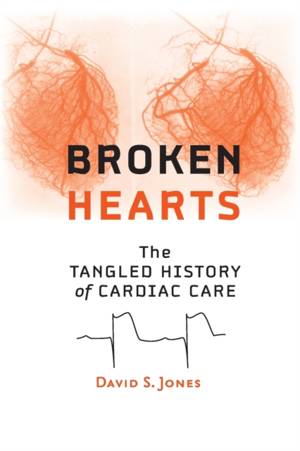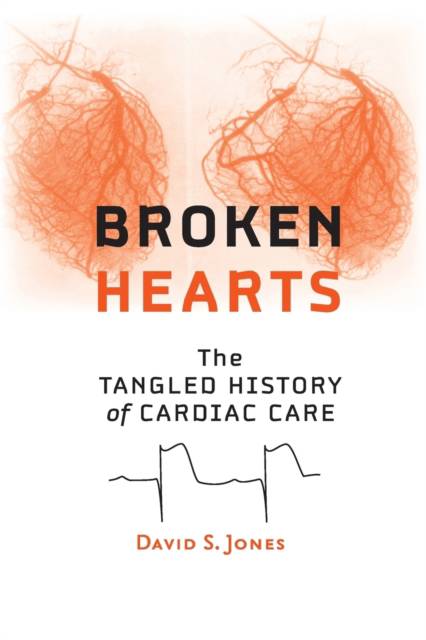
- Afhalen na 1 uur in een winkel met voorraad
- Gratis thuislevering in België vanaf € 30
- Ruim aanbod met 7 miljoen producten
- Afhalen na 1 uur in een winkel met voorraad
- Gratis thuislevering in België vanaf € 30
- Ruim aanbod met 7 miljoen producten
Zoeken
€ 51,95
+ 103 punten
Uitvoering
Omschrijving
Still the leading cause of death worldwide, heart disease challenges researchers, clinicians, and patients alike. Each day, thousands of patients and their doctors make decisions about coronary angioplasty and bypass surgery. In Broken Hearts David S. Jones sheds light on the nature and quality of those decisions. He describes the debates over what causes heart attacks and the efforts to understand such unforeseen complications of cardiac surgery as depression, mental fog, and stroke. Why do doctors and patients overestimate the effectiveness and underestimate the dangers of medical interventions, especially when doing so may lead to the overuse of medical therapies? To answer this question, Jones explores the history of cardiology and cardiac surgery in the United States and probes the ambiguities and inconsistencies in medical decision making. Based on extensive reviews of medical literature and archives, this historical perspective on medical decision making and risk highlights personal, professional, and community outcomes.
Specificaties
Betrokkenen
- Auteur(s):
- Uitgeverij:
Inhoud
- Aantal bladzijden:
- 336
- Taal:
- Engels
Eigenschappen
- Productcode (EAN):
- 9781421415758
- Verschijningsdatum:
- 1/08/2014
- Uitvoering:
- Paperback
- Formaat:
- Trade paperback (VS)
- Afmetingen:
- 152 mm x 229 mm
- Gewicht:
- 494 g

Alleen bij Standaard Boekhandel
+ 103 punten op je klantenkaart van Standaard Boekhandel
Beoordelingen
We publiceren alleen reviews die voldoen aan de voorwaarden voor reviews. Bekijk onze voorwaarden voor reviews.











